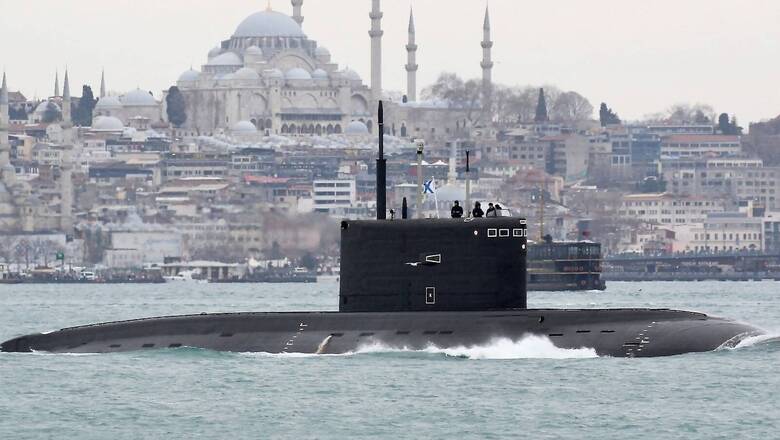
views
The Black Sea is suddenly in the limelight for its importance in the geopolitical and geoeconomic landscape as the Russian invasion of Ukraine continues. The large inland sea is of high strategic and economic value to all six countries on its shores – Russia to the northeast, Ukraine to the north, Georgia to the east, Turkey to the south and Bulgaria as well as Romania to the west.
On Saturday, Ukrainian President Volodymyr Zelensky claimed that Turkey will seal two straits – Bosphorus and Dardanelles — to block the access of returning Russian warships to the Black Sea. This was a day after Turkey’s foreign minister said it could not stop the warships due to a clause in an international pact that allows vessels to return to their home base.
Russia, however, has dismissed all such claims by Ukraine and said Turkey had not notified about closure of the straits.
Here’s all you need know about why the Black Sea’s location has gained in importance with Russia invading its neighbour Ukraine:
How the Black Sea is positioned
The Black Sea is a large inland sea, about the same size as the US state California, and is located between Europe and Asia. With Russia on its northeast shores, the Black Sea has Ukraine to the north, Georgia to the east, Turkey to the south and Bulgaria as well as Romania to the west. Now, three out of these six nations are NATO members — Turkey, Bulgaria and Romania.
NATO and the Black Sea
After a French warship did a tour in January, no major NATO naval ally has made its presence felt in the Black Sea. As the western military alliance scrambles to respond to the invasion, a major exposed flank is the Black Sea. The alliance has time and again failed to prevent Russia from building a presence in the area.
It was nowhere to be seen when 16 ships from Russia’s naval fleets, including missile ships and vessels capable of landing tanks, had sailed into the Black Sea much before the invasion. Russia had called these “naval drills” back then.
NATO has long been accused of leaving the Black Sea exposed despite having a presence there with three member countries and two close allies, one of which is war-hit Ukraine. Recently, this was exposed when Russia first attacked Ukraine.
According to a Reuters report, the nearest naval vessel of a major NATO ally was in the Mediterranean when the invasion began. The last such ship from a major naval member of NATO left the Black Sea over a month ago.
According to Turkish maritime website Turkishnavy.net, which tracks movements of foreign warships, a French warship completed a tour in early January and no major NATO naval ally has patrolled its waters since.
There is a key reason to all of this: NATO’s member countries are divided on whether they should challenge Russia’s navy in the area. This has resulted in a lack of coherent and meaningful Black Sea strategy. Turkey, especially, has often shown reluctance to agree to maritime patrols to avoid provoking Moscow.
The presence of NATO warships in the Black Sea has fluctuated. According to Turkishnavy.net, US naval forces spent around 180 days in the Black Sea last year, up from less than 60 days in 2016 but down from over 200 days in 2014. Non-littoral NATO allies deployed 31 ships to the area in 2014, that dropped to 14 in 2016 before rising again to 31 last year, according to an independent database run by a Ukrainian think tank, the Monitoring Group of the Black Sea Institute of Strategic Studies and BlackSeaNews.
Advantage Russia in Black Sea
Due to its naval presence in the Black Sea, Russia has both military and economic leverage over Ukraine. In fact, Russia has been disrupting the country’s maritime trade long before the invasion took place.
Ukraine’s ports have witnessed sharp fall in traffic over the recent weeks and, after the attack on February 24, it suspended operations at its sea ports.
“It’s like a boa constrictor around Ukraine’s neck, squeezing and squeezing and squeezing,” retired US Admiral James Foggo, who commanded US and NATO fleets in Europe for almost a decade until 2020, was quoted as saying by Reuters. He added that NATO needs a maritime strategy.
Russia has long complained about what it has called a dangerous increase in military activity by the United States and its allies in the Black Sea. In 2014, Russia’s annexation of Ukraine’s Crimea peninsula was a major move through which the country was able to establish a dominating presence in the Black Sea. Russia took over or sank many of Ukraine’s navy vessels stationed in the Black Sea port of Sebastopol. At present, Moscow has 18 major warships in the Black Sea.
Now, the geo-economics of it
The Black Sea has been a major trade route for Russia for centuries. Its warmer waters in contrast to the Arctic have been critical since at least the 17th century. “Going back to Peter the Great, Russia has always been concerned as a land power about its lack of maritime access, particularly year round ice-free access,” retired British vice admiral Duncan Potts was quoted as saying by Reuters.
The sea is of high economic importance to Russia for its trade with Europe through two straits – Dardanelles and Bosphorus. Russia heavily relies on large warm-water seaports of Sebastopol and Novorossiysk. These have massive cargo facilities. The Black Sea, in a way, opens up Russia not only to Europe but to the rest of the world through as it provides transit routes to Sea of Marmara, the Mediterranean and the Atlantic Ocean.
Russia is the world’s largest exporter of grains, and the second largest exporter of crude. Hence, it uses its warm-water ports in the Black Sea to ship cargo throughout the year.
Ukraine, too, relies heavily on its coastline for trade. More than half of the country’s exports and imports travel by sea.
Russia strategically attacked the Black Sea port of Odessa, which is Ukraine’s busiest port and largest oil and gas terminal. It came under Russian missile attack on Thursday. The same day Ukraine’s military suspended commercial shipping at its ports after Russian forces invaded the country.
Due to the arrival of Russian naval warships in the Black Sea, shipping traffic had also recently dropped. According to Reuters, the number of container ship arrivals to Ukrainian ports this month through February 20 had fallen to 25 visits, down sharply from 48 during January.
The capacity of ships coming into Odessa had also been more than halved. For the first three weeks of February, it was at 46,357 20-foot container units, down from 82,091 in January and 97,027 in December 2021, data from U.S. headquartered logistics platform project44 showed.
Turkey’s role in all of this
Turkey controls Dardanelles and Bosphorus straits in the Black Sea through which Russia conducts most of its trade with Europe. Turkey, a NATO member, has not publicly announced any ban on Russian warships using them to travel to the Mediterranean. On Friday, Turkey’s foreign minister even said Ankara could not bar warships returning to a home base in the Black Sea from passing through the straits, citing the Montreux Convention of 1936.
According to this international pact, Turkey has control over passage of vessels between the Mediterranean and the Black Sea. In wartime, Turkey is authorised to close the straits to all foreign warships or when it is threatened by aggression. It can also refuse transit for merchant ships from countries at war with Turkey and to fortify the straits in case of conflict.
But Turkey in a unique bind: Ankara has strong diplomatic ties with Moscow, but it must also fulfil its obligations as a NATO ally. Analysts said a step too far and Turkey will be risking energy, trade and tourism ties with Russia.
Since tensions flared over Ukraine, Turkish officials have said only that Montreux is instrumental in keeping regional peace. They have not specified what position Turkey would take in the event of a war.
Erdogan said Turkey would try to manage the crisis without abandoning ties with either Ukraine or Russia.
During World War II, the Montreux accord prevented the Axis powers from sending naval forces through the straits to attack the Soviet Union.
(With agency inputs)
Read the Latest News and Breaking News here










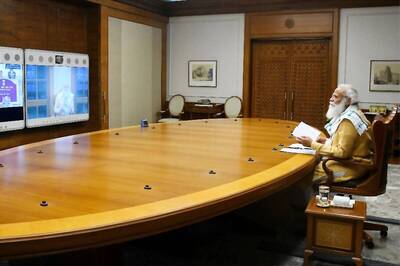


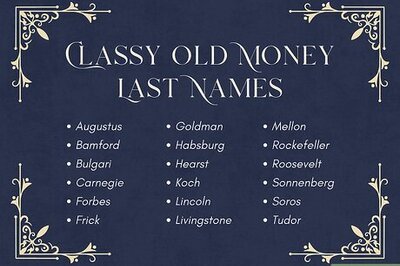

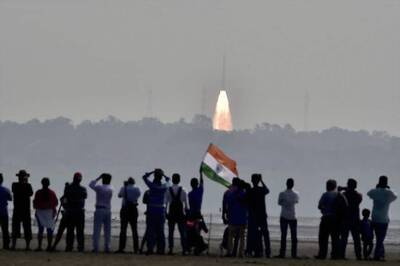



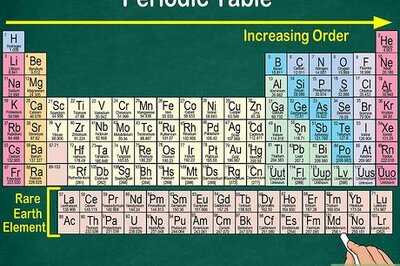
Comments
0 comment